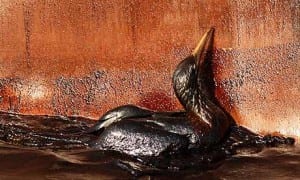Beautiful Minds is a Channel 4 series about some of the greatest scientific discoveries of our age. I was pleased to see that the second episode was devoted to James Lovelock; it’s time he was credited with recognition for the all the right rather than the wrong reasons.
I always thought Lovelock was a sensible scientist. His idea that the earth was a self-regulating organism, made up of complex interrelationships that can be detrimentally altered by human activity, never felt odd or strange. When the Gaia hypothesis was first made public you could find me down in the country, on a bit of land and living the good life; chickens and all. I felt in tune with the seasons and growing cycles, and witnessed the mysterious power of nature on a daily basis. Lovelock’s ideas made sense. It was a shock to read about his subsequent denouncement by the scientific community who made out that this uniquely individual mind was maverick and almost insane.
The Gaia hypothesis was in the news again recently. Lovelock claims that climate change is irreversible. The damage has been done. Just as he has been proved right before (the first to detect the widespread presence of CFCs in the atmosphere and the effect of the sun on micro organisms controlling the temperature of the oceans) so he may be right again. Something needs to change.
It’s frustrating that change on an individual level – while commendable – we can all change our lifestyles, shop differently, recycle and grow more of our own food (whether we want to or not being a different issue) but when compared to the international scale of over fishing, deforestation and the burning of fossils fuels, can feel like a grain of sand in a desert. We would find it hard to live without balance; heat, light, water, food are all basic ingredients and we are dependent on nature for them all. How can we not have respect? At the very least we should take time out to think about it. Do something for the planet and watch the programme here this weekend.


